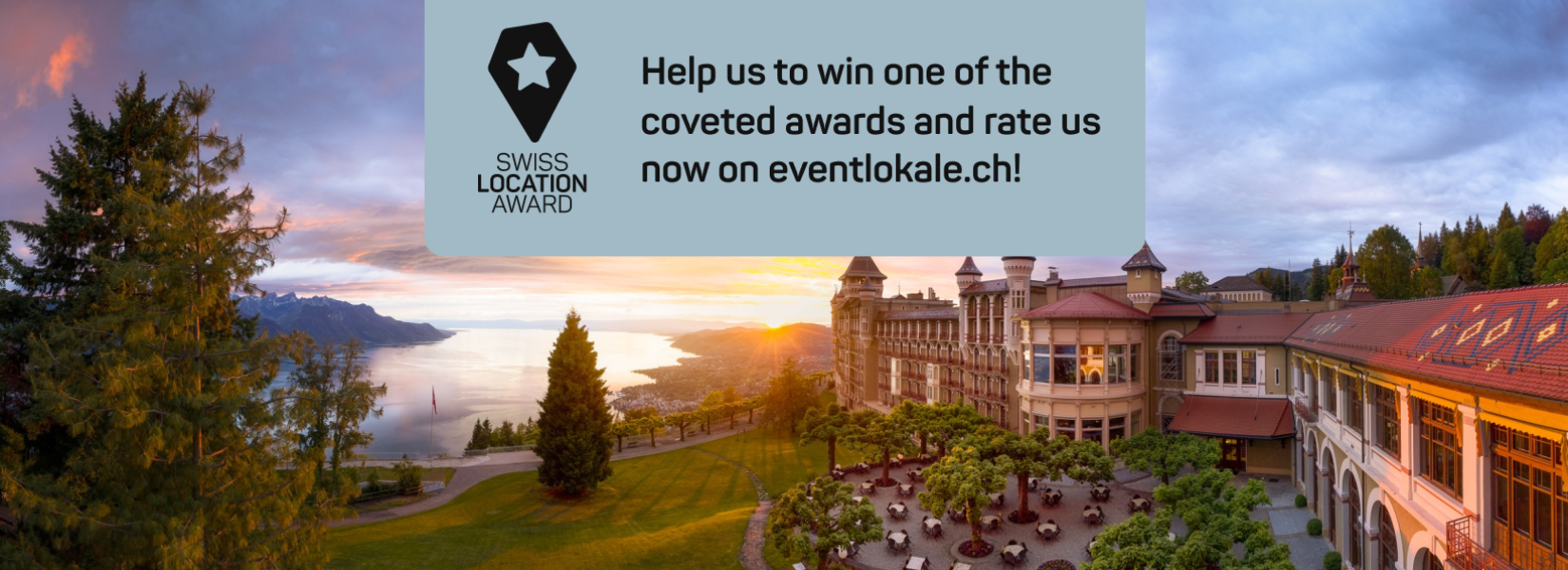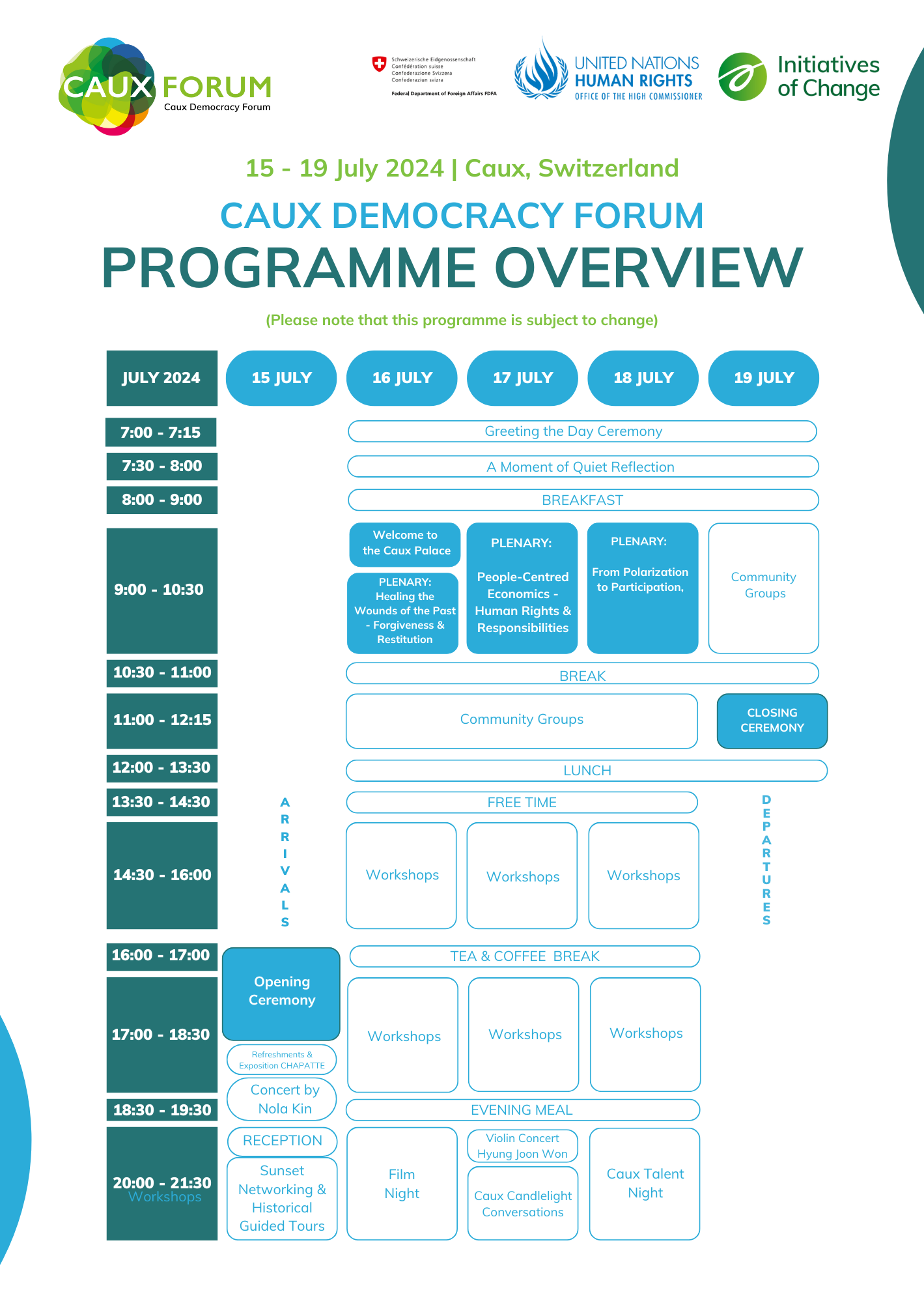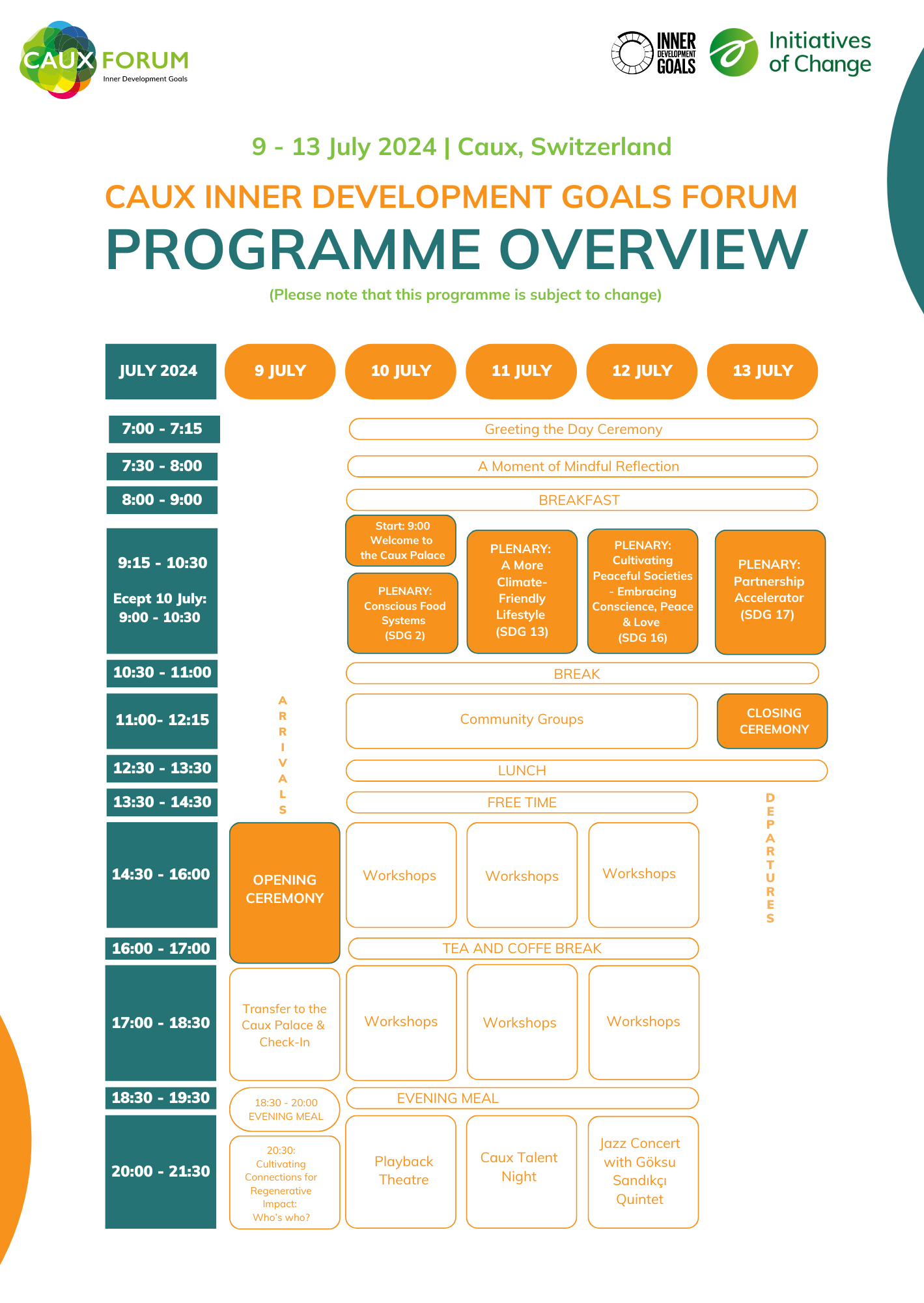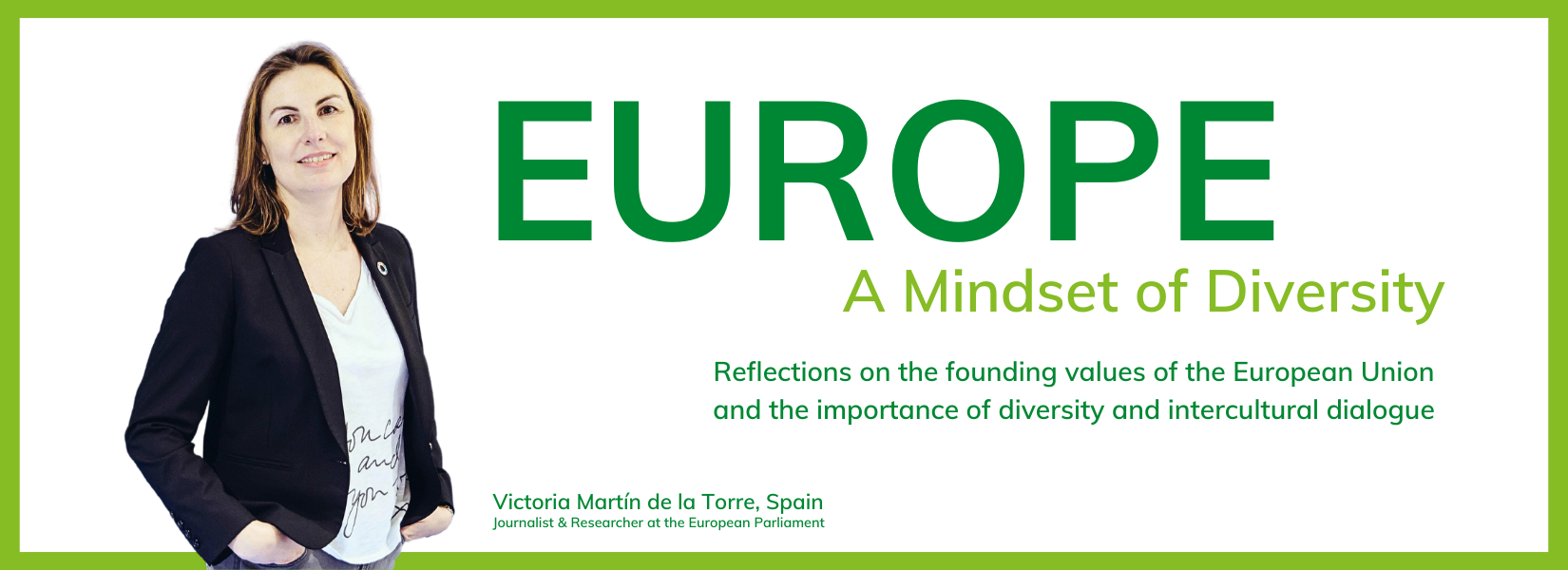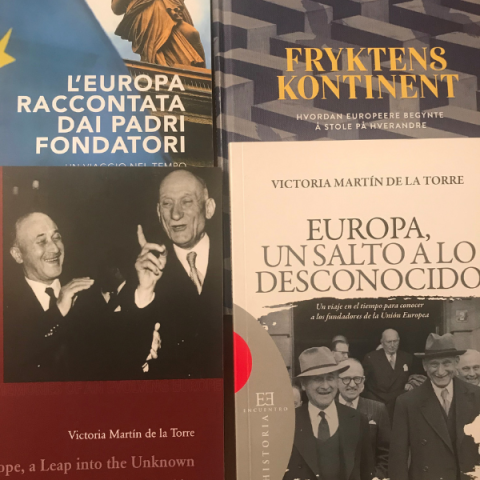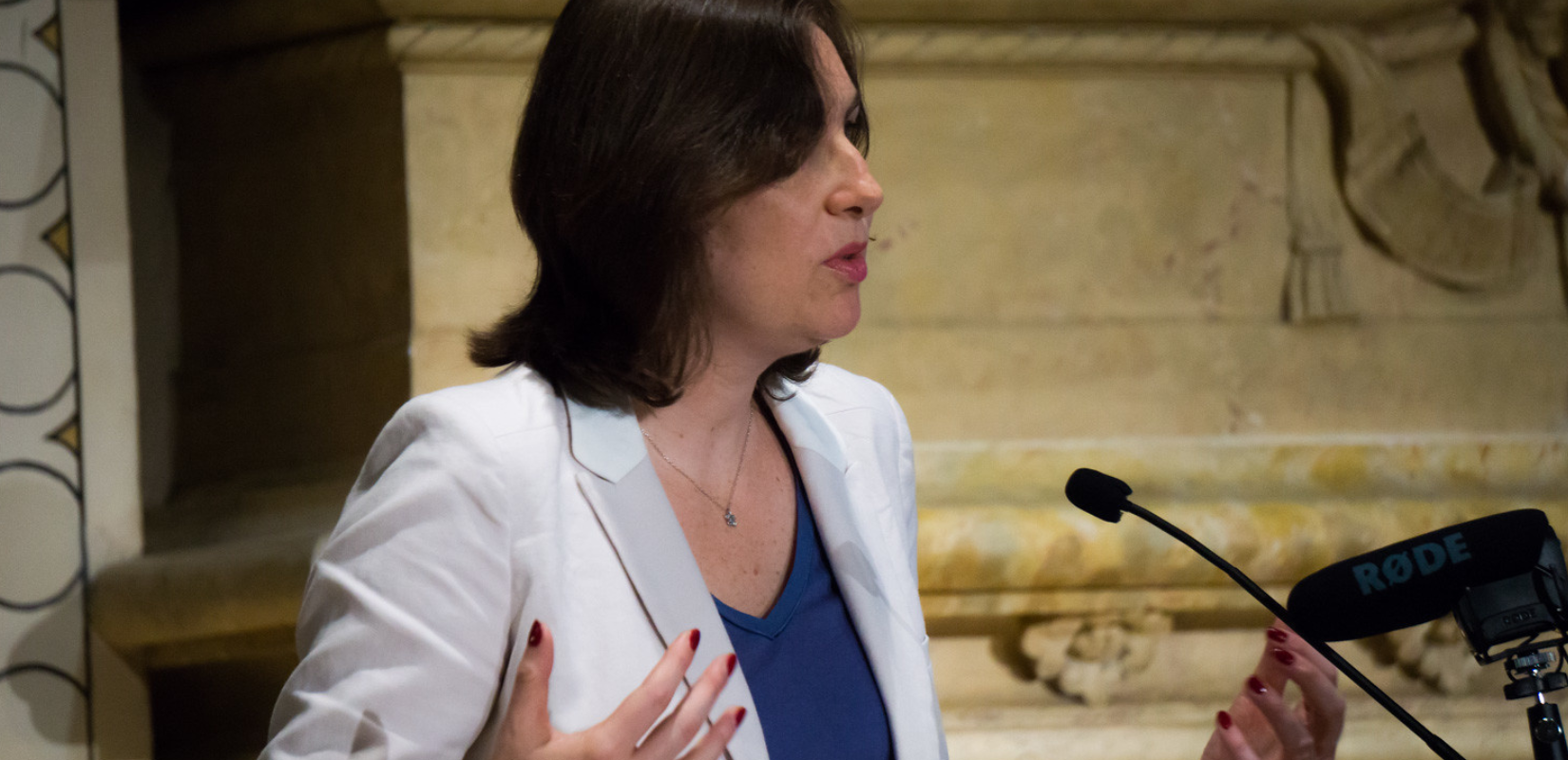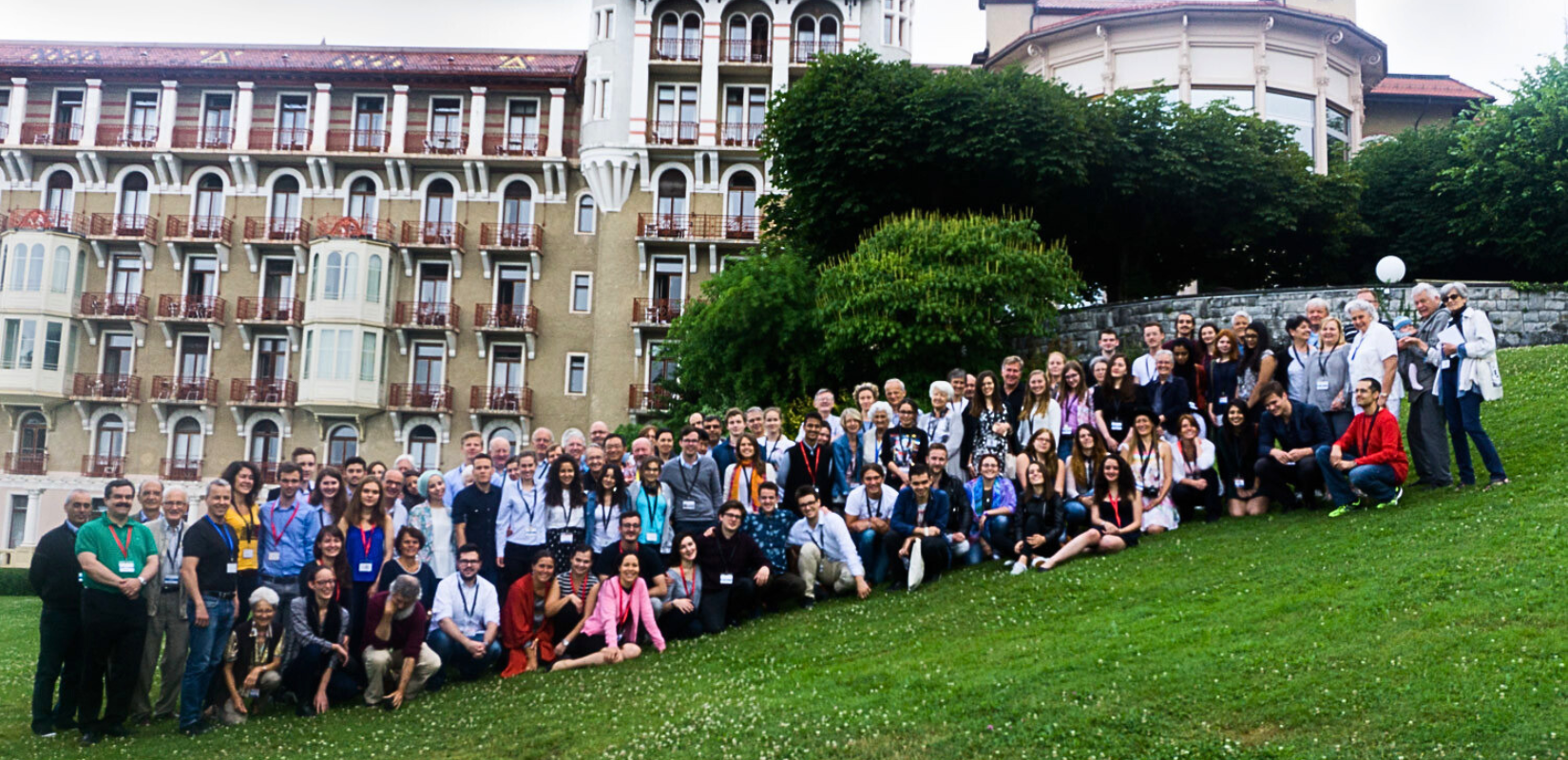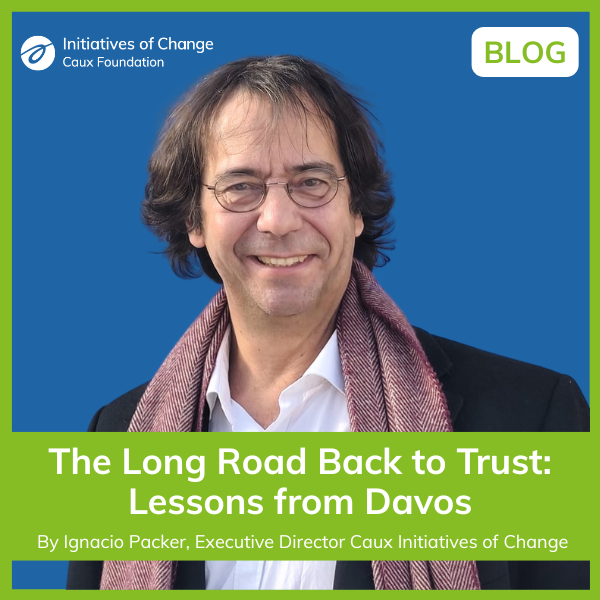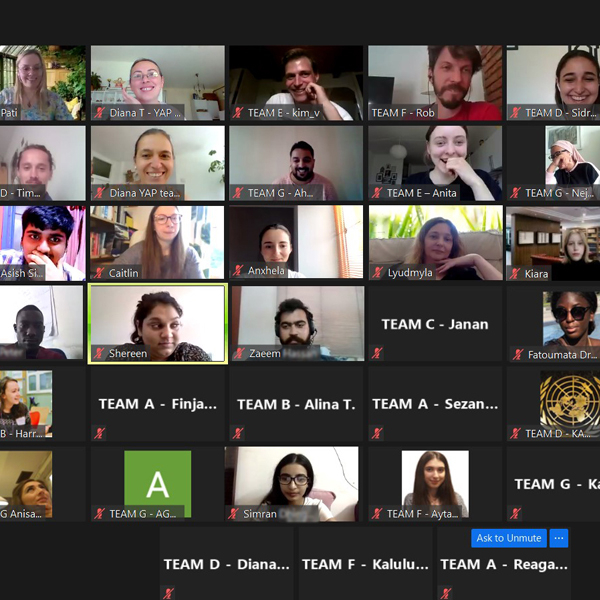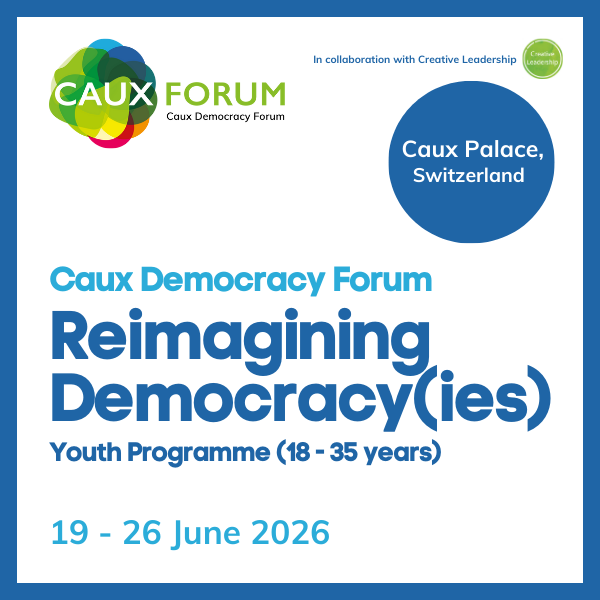Caux Palace nominated for Swiss Location Award 2024
Deadline 31 May - Your vote matters!
23/05/2024
EXCITING NEWS! Our centre for peace and dialogue, the Caux Palace has been nominated for the prestigious Swiss Location Award 2024 !
This is a significant honour, and we are thrilled about the opportunity to be recognized among the best locations in Switzerland.
To win this award, we need the support of our wonderful community. Your vote can make a difference! Click the link below and cast your vote for us before 31 May 2024. Every vote counts!
Once on the page, click on “Rate Now” and leave your rating and comment – it only takes 1 minute !
Your vote not only helps us but also acknowledges the hard work and dedication of everyone involved in making the Caux Palace & Villa Maria a remarkable place. Please don’t hesitate to share this news with your contacts who have already been to the Caux Palace!
Thank you in advance for your support and for being part of our Foundation’s mission !
YOU CAN VOTE HERE

CAUX DEMOCRACY FORUM 2024 - PROGRAMME
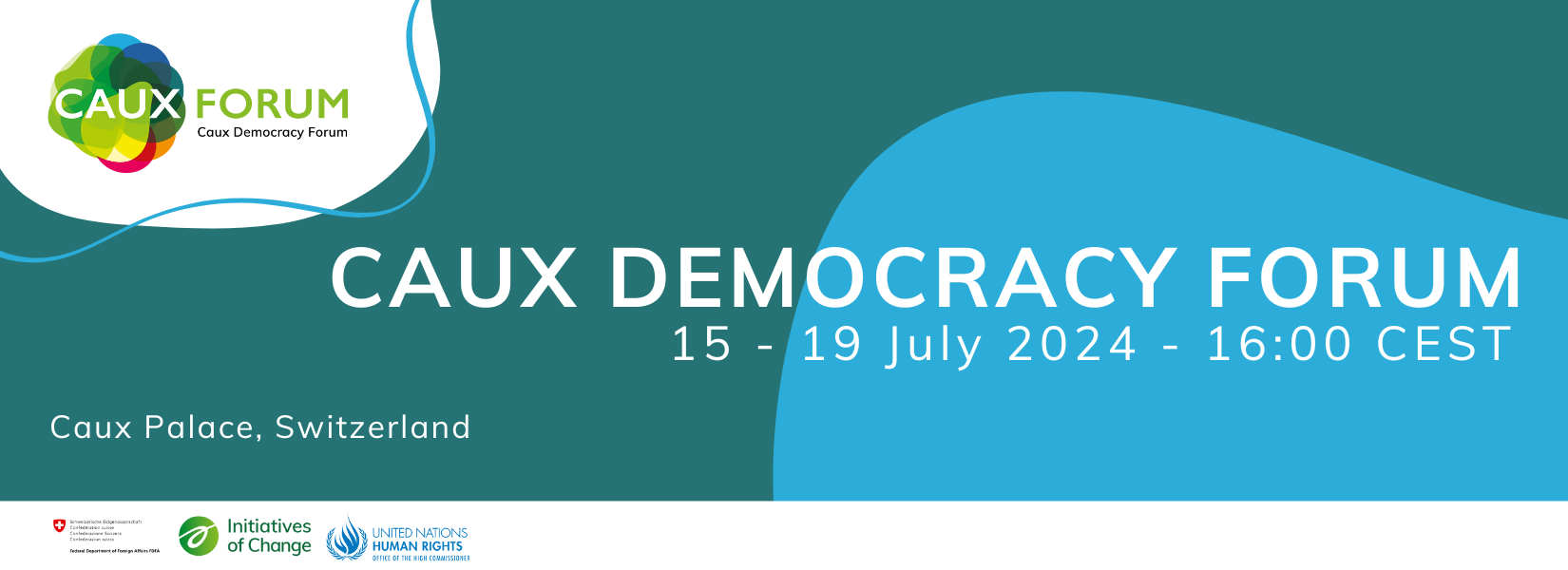
Welcome at the Caux Democracy Forum in Caux (15 - 19 July 2024).
Please note that the announced times are based on CEST time and that this programme might be subject to change.
You can find detailed information on the event and our speakers & artists here:
* Opening Ceremony Caux Democracy Forum - 15 July 2024, 16:00 CEST
* Full-residential Caux Democracy Forum - 15 - 19 July 2024
* Download the programme (overview)
programme
Monday, 15 July
OPENING CEREMONY: Revitalising democracy - towards inclusive and peaceful societies across Europe and the world
In collaboration with the Geneva Diplomatic Club, the opening ceremony of the Caux Democracy Forum will take place at the Caux Palace on 15 July at 16:00 CEST, followed by a reception and concert organised with the support of the Montreux Jazz Artists Foundation.
If you're not planning to attend the entire four-day residential forum, you can still register for the opening ceremony. To secure your place, we kindly ask you to fill out the online registration form.
- Cost for Day Guests: CHF 70.-/person (including reception & concert). Please note that If you have registered for the full-residential forum (15 - 19 July) the Opening Ceremony is included in your package and that you don't have to register separately.
Programme
MUSIC
- Jean-Marc Vignoli, Violonist
WELCOME BY THE MASTER OF CEREMONY
- Ignacio Packer, Executive Director Caux Initiatives of Change Foundation
WELCOME ADDRESS
- Jacqueline Coté, President Caux Initiatives of Change Foundation
- Raymond Loretan, Chairman Geneva Diplomatic Club
A WELCOME FROM SWITZERLAND
Ambassador Thomas Guerber, Deputy State Secretary, Head of UN Division
MUSIC
- Jean-Marc Vignoli, Violonist
KEYNOTE
- Nada Al-Nashif, United Nations Deputy High Commissioner for Human Rights
MUSIC
MUSIC
- Jean-Marc Vignoli, Violonist
KEYNOTE
- Ambassador Andrius Krivas, Chair of the Committee of Ministers’ Deputies, Permanent Representative of Lithuania to the Council of Europe
MUSIC
- Jean-Marc Vignoli, Violonist
LIVING LIBRARY: VOICES FROM THE MAP
Three youth from three continents sharing testimonies of their day-to-day life and what democracy means for them
- Maruee Pahuja (India), Expressive Arts Therapy Facilitator & Strategist, Visual Artist & Eye-care Practitioner
- Jonas Truneh (UK), Project Development Officer at Triangle
- Sidra Raslan (Syria), Creative Leadership & HP Amplify Impact Partner Sustainability Programme
MUSIC
- Jean-Marc Vignoli, Violonist
REFLECTIONS
- Prof. Rajmohan Gandhi, Historian, Biographer and former Member of India’s Parliament
WHAT'S NEXT IN CAUX?
- Sarah Noble, Head of Global Engagement, Caux Initiatives of Change
MUSIC
- Jean-Marc Vignoli, Violonist
REFRESHMENTS
EXPOSITION "About Democracy..." - Political Cartoons by Patrick Chappatte
FOLK-POP CONCERT by NOLA KIN
With the support of the Montreux Jazz Artists Foundation
RECEPTION: Buffet-style dinner
SUNSET NETWORKING & HISTORICAL GUIDED TOURS
- Between 20:00 and 22:00: SUNSET NETWORKING (Sunset at 21:20).
- Between 20:00 - 21:15: Possibility for HISTORICAL GUIDED TOURS of the Caux Palace (mainly for guests of the Diplomatic Club)
Tuesday, 16 July
GREETING THE DAY CEREMONY
With:
- LEWIS CARDINAL, Leader of the Global Indigenous Dialogue
A MOMENT OF QUIET REFLECTION
With:
JEAN-MARC VIGNOLI, violin
BREAKFAST
WELCOME TO THE CAUX PALACE
Practical information for your stay in Caux
PLENARY: HEALING THE WOUNDS OF THE PAST - FORGIVENESS & RESTITUTION
Hosts:
- PETER RIDDELL, Convenor, Agenda for Reconciliation, Initiatives of Change UK
- DAYA BHAGWANDAS, Social Entrepreneur, Neuro Educator and Yoga Master
Speakers:
- ASSAAD CHAFTARI, Co-Founder of Fighters for Peace
- DR. PETER SHAMBROOK, Independant Scholar & Historical Consultant, Balfour Project
- ANGELA STARAVOYTOVA, Peacebuilder & Facilitator, Foundations for Freedom, Ukraine
- REV DR. JAMES MOVEL WUYE, Pentecoastal Pastor and Co-Executive Director of the Interfaith Mediation Centre Kaduna, Nigeria
- IMAM DR. MUHAMMAD NURAYN ASHAFA, Co-Executive Director of the Interfaith Mediation Centre Kaduna, Nigeria
- AMINA DIKEDI-AJAKAIYE, Immediate past-president of Creators of Peace International
- NADA AL-NASHIF, United Nations Deputy High Commissioner for Human Rights
BREAK
COMMUNITY GROUPS
LUNCH
FREE TIME
WORKSHOPS
Workstream 1: Healing the Wounds of the Past - Forgiveness & Restitution
SESSION 1 - PART 1
With:
- ASSAAD CHAFTARI, Co-Founder of Fighters for Peace (Lebanon)
- DR. PETER SHAMBROOK, Independant Scholar & Historical Consultant, Balfour Project (UK)
Workstream 2: People-centred Economics: Creating common wealth
With:
- MARK GOYDER, Founder Director of Tomorrow’s Company (UK)
Workstream 3: Civil Society fostering Dialogue: From Polarization to Participation, A Guide to Action
Exploring cornerstones and values for progress while avoiding double standards (Part 1)
With:
- PARTICIPANTS
- CHRISTOPH SPRENG, Advisor to the Standing Comittee CINGO
- DR LAURIE JOHNSTON, Professor of Theology, Emmanuel College, Boston/USA
TEA AND COFFEE BREAK
WORKSHOPS
Workstream 1: Healing the Wounds of the Past - Forgiveness & Restitution
SESSION 1 - PART 2:
Interactive breakout rooms, getting to know each other and sharing discoveries
Workstream 2: People-centred Economics: Developing a media of integrity
With:
- RICHARD WERLY, Journalist (Switzerland)
-
CAROLINE VUILLEMIN, General Director Fondation Hirondelle
Workstream 2: Civil Society fostering Dialogue: From Polarization to Participation, A Guide to Action
Exploring cornerstones and values for progress while avoiding double standards (Part 2)
With:
- PARTICIPANTS
- CHRISTOPH SPRENG, Advisor to the Standing Comittee CINGO
- DR LAURIE JOHNSTON, Professor of Theology, Emmanuel College, Boston/USA
EVENING MEAL
FILM NIGHT: "THE HARDEST BRIDGE"
FILM: THE HARDEST BRIDGE
A special preview of a new documentary film
The title of the film refers to the journey of a young woman whose father, a British government minister, was killed in an explosion in 1984, and the Irish Republican Army member who planted the bomb.
The two people mentioned above, Jo Berry and Dr Patrick Magee, together with the director of the film, Dr Imad Karam, Executive Director of IofC International and a Palestinian from Gaza, will be present and will answer questions after the film.
Wednesday, 17 July
GREETING THE DAY CEREMONY
With:
- LEWIS CARDINAL, Leader of the Global Indigenous Dialogue
A MOMENT OF QUIET REFLECTION
BREAKFAST
PLENARY: REVITALISING DEMOCRACY AND HUMAN RIGHTS
The struggle for democracy and human rights demands courage and commitment. We will hear from people active in this struggle. It will offer all a chance to understand the challenge and to discover how each of us can contribute.
Hosts:
- JOHN BOND, Journalist & Author, Initiatives of Change
- SARAH NOBLE, Head of Global Engagement, Caux Initiatives of Change Foundation
Speakers
- SYLVIA VALENTIN, Advocacy Officer Terre des Hommes Switzerland & Board Member Coalition for Corporate Responsibility
- LEWIS CARDINAL, Educator, Storyholder, Leader of the Global Indigenous Dialogue, Canada
- CORINNE MOMAL-VALIAN, Executive Director Kofi Annan Foundation
- TODD HOWLAND, Chief of the Development, Economic, and Social Rights Branch of the Office of the High Commissioner for Human Rights
BREAK
COMMUNITY GROUPS
LUNCH
FREE TIME
WORKSHOPS
Workstream 1: Healing the Wounds of the Past - Forgiveness & Restitution
SESSION 2 - PART 1
With:
- JO BERRY, Founder of Building Bridges for Peace and Public Speaker
- DR PATRICK MAGEE, Author and Public Speaker
Workstream 2: People-centred Economics: Defeating Corruption
With:
- FARAI MAGUWU, Executive Director, Centre for Natural Resource Governance, Zimbabwe
Workstream 3: Civil Society fostering Dialogue: From Polarization to Participation, A Guide to Action
Unpacking the methodology of INGO Dialogues, harmonizing the inner and outer development (Part 1)
With:
- PARTICIPATION
- CHRISTOPH SPRENG, Advisor to the Standing Comittee CINGO
- DR LAURIE JOHNSTON, Professor of Theology, Emmanuel College, Boston/USA
TEA & COFFEE BREAK
WORKSHOPS
Workstream 1: Healing the Wounds of the Past - Forgiveness & Restitution
SESSION 2 - PART 2
Interactive breakout rooms, getting to know each other and sharing discoveries
Workstream 2: People-centred Economics: Refugees for global solution: rebuilding communities and country of origin
With:
- DR MUNA ISMAIL, Programme Manager Refugees as Re-Builders™, IofC UK
- ALHAMISS DICKO, President GEN-émergent, Mauritania
- RIANNE TEN VEEN, Consultant/ Freelancer in training, dialogue, environment and project management
Workstream 3: Civil Society fostering Dialogue: From Polarization to Participation, A Guide to Action
Unpacking the methodology of INGO Dialogues, harmonizing the inner and outer development (Part 2)
With:
- PARTICIPANTS
- CHRISTOPH SPRENG, Advisor to the Standing Comittee CINGO
- DR LAURIE JOHNSTON, Professor of Theology, Emmanuel College, Boston/USA
EVENING MEAL
CAUX CANDLELIGHT CONVERSATIONS
VIOLIN CONCERT
With:
HYONG JOON WON (South Korea), Artistic Director, Lindenbaum Festival Orchestra
Thursday, 18 July
GREETING THE DAY CEREMONY
With:
- LEWIS CARDINAL, Leader of the Global Indigenous Dialogue
A MOMENT OF QUIET REFLECTION
BREAKFAST
PLENARY: FROM POLARIZATION TO PARTICIPATION
Hosts:
- IGNACIO PACKER, Executive Director, Caux Initiatives of Change Foundation
- SARAH NOBLE, Head of Global Engagement, Caux Initiatives of Change Foundation
Speakers:
- MARTIN BOGOMILOV PENOV (Bulgaria), Vice-President of the Young European Federalists
- MURSAL KHAROTI (Afghanistan/UK), Mental Health Activist
- VERONICA TING-HSIN HONG (Taiwan), Coach, Changemaker & Social Entrepreneur
- PROF MYROSLAV MARYNOVYCH (Ukraine), Educator & Human Rights Activist
- HON. JACQUELINE NYIBOL BENJAMIN, Member of Parliament South Sudan
- NATHALIE CHAVANNE (France), Member of Board of Directors Initiatives of Change France
- HON LEE JU-YOUNG (South Korea), former deputy speaker of South Korea’s National Assembly, former Minister of Ministry of Maritime Affairs and Fisheries, five-term National Assembly member
- VERONICA ALCOCER GARCIA (Colombia), First Lady of Colombia
BREAK
COMMUNITY GROUPS
LUNCH
FREE TIME
WORKSHOPS
Healing the Wounds of the Past - Forgiveness & Restitution
SESSION 3 - PART 1
With:
- REV DR. JAMES MOVEL WUYE, Pentecoastal Pastor and Co-Executive Director of the Interfaith Mediation Centre Kaduna, Nigeria
- IMAM DR. MUHAMMAD NURAYN ASHAFA, Co-Executive Director of the Interfaith Mediation Centre Kaduna, Nigeria
.
Workstream 2: People-centred Economics: Defending democracies under attack
With:
- ANGELA STARAVOYTOVA and colleagues from Ukraine
Workstream 3: Civil Society fostering Dialogue: From Polarization to Participation, A Guide to Action
Identifying your own course of action, recognizing that words and deeds matter (Part 1)
With:
- PARTICIPANTS
- CHRISTOPH SPRENG, Advisor to the Standing Comittee CINGO
- DR LAURIE JOHNSTON, Professor of Theology, Emmanuel College, Boston/USA
TEA & COFFEE BREAK
WORKSHOPS
Workstream 1: Healing the Wounds of the Past - Forgiveness & Restitution
SESSION 3 - PART 2
Interactive breakout rooms, getting to know each other and sharing discoveries
People-centred Economics: A climate-change economy
With:
- SIDRA RASLAN, Creative Leadership & HP Partner Sustainability Programme
Workstream 3: Civil Society fostering Dialogue: From Polarization to Participation, A Guide to Action
Identifying your own course of action, recognizing that words and deeds matter (Part 2)
With:
- PARTICIPANTS
- CHRISTOPH SPRENG, Advisor to the Standing Comittee CINGO
- DR LAURIE JOHNSTON, Professor of Theology, Emmanuel College, Boston/USA
EVENING MEAL
CAUX TALENT NIGHT
Friday, 19 July
GREETING THE DAY CEREMONY
With:
- LEWIS CARDINAL, Leader of the Global Indigenous Dialogue
A MOMENT OF QUIET REFLECTION
BREAKFAST
CHECK-OUT AT RECEPTION
On the day of departure, the forum will end after lunch. For organisational reasons and to prepare our spaces for other events, we kindly request all participants to check out of their rooms by 10:00 CEST on the day of departure and to leave the site by 14:00 CEST.
Please note that a luggage room will be at your disposal until your departure after lunch.
COMMUNITY GROUPS
BREAK
CLOSING CEREMONY
LUNCH
DEPARTURE
On the day of departure, the forum will end after lunch. For organisational reasons and to prepare the Caux Palace for the following event, we kindly request all participants to check out of their rooms by 10:00 CEST on the day of departure and to leave the site by 14:00 CEST.
Please note that a luggage room will be at your disposal until your departure after lunch.

Caux Inner Development Goals Forum 2024 - PROGRAMME
Welcome at the Caux Inner Development Goals Forum in Caux (9 - 13 July 2024).
Please note that the announced times are based on CEST time and that this programme might be subject to change.
You can find detailed information on the event and our speakers & artists here:
* Opening Ceremony Caux IDG Forum - 9 July 2024, 14:30 CEST
* Full-residential Caux IDG Forum - 9 - 13 July 2024
* Download the programme overview
programme
Tuesday, 09 July
OPENING CEREMONY
The Opening Ceremony for the Caux Inner Development Goals Forum will be held at the Maison de la Paix in Geneva. Bringing together 200 participants and distinguished speakers drawn from the Inner Development Goals and Initiatives of Change communities, civil society, government, youth movements, academia and business, the ceremony promises to be a vibrant convergence of ideas and perspectives.
Following the ceremony, attendees will have the opportunity to network and engage further during a coffee break. For those attending the full-residential Caux IDG Forum, transport will be arranged to the Caux Palace afterwards where the evening meal will be served.
- Venue: Auditorium Ivan Pictet, Pétale 1, Maison de la Paix, Chemin Eugène-Rigot 2, Geneva, Switzerland
- Time: 14:30 - 16:30 CEST
- Language: English
- Attendance: free
Programme
Please note that this programme is still subject to change.
WELCOME BY THE MODERATOR
- Sarah Noble, Head of Global Engagement, Caux Initiatives of Change Foundation
WELCOME ADDRESS
- Jacqueline Coté, President Caux Initiatives of Change Foundation
REMARKS
- Tatiana Valovaya, Director-General of the United Nations Office in Geneva
KEYNOTE
- Ambassador Christian Guillermet Fernández, Permanent Representative of Costa Rica
MUSIC
- Jean-Marc Vignoli, Violinist
IGNITE TALK
- Louise Le Gat, Founder and President A Purpose-Led World And School
CULTIVATING OUR COURAGE IN TIMES OF CHANGE
- Ignacio Packer, Executive Director Caux Initiatives of Change Foundation
MUSIC
- Jean-Marc Vignoli, Violinist
UNVEILING THE PATH WITHIN: A FRAMEWORK FOR INNER DEVELOPMENT GOALS
- Jan Artem Henriksson, Executive Director of the IDG Foundation
MUSIC
- Jean-Marc Vignoli, Violinist
LIVING LIBRARY: VOICES OF THE MAP
Three youth from three continents sharing testimonies of their day-to-day life and what inner development means to them.
- Daniel Clements (UK), Teacher & Programme Manager Creative Leadership initiative for young leaders
- Asmaa Sleem (Egypt), Educator, Storyteller and Founder of Lifelong Learning Talks
- Steven Lin (Canada), Community Organizer
MUSIC
- Jean-Marc Vignoli, Violinist
REFLECTIONS
- Prof. Rajmohan Gandhi, Historian, Biographer, former Member of India’s Parliament and grandson of Mahatma Gandhi
MUSIC
Jean-Marc Vignoli, Violinist
COMMEMORATION CORNELIO SOMMARUGA
- Jacqueline Coté, President Caux Initiatives of Change Foundation
- Andrew Stallybrass, Caux Palace Historian
CLOSING: WHAT'S NEXT IN CAUX?
- Sarah Noble, Head of Global Engagement, Caux Initiatives of Change
COFFEE & NETWORKING
TRANSFER TO THE CAUX PALACE
DETAILED INFORMATION & REGISTRATION
EVENING MEAL
CULTIVATING CONNECTIONS FOR REGENERATIVE IMPACT: WHO'S WHO IN THE HOUSE?
With:
- PONTUS HOLMGREN, Psychologist, Facilitator and Global Coordinator of the IDG Hubs and Networks
- RAFAELA ROLIM, Founder of Brazilian Experience and Facilitator
Wednesday, 10 July
GREETING THE DAY CEREMONY
With:
- LEWIS CARDINAL, Leader of the Global Indigenous Dialogue
A MOMENT OF MINDFUL REFLECTION
BREAKFAST
WELCOME TO THE CAUX PALACE
Practical information for your stay at the Caux Inner Development Goals Forum
PLENARY: CONSCIOUS FOOD SYSTEMS (SDG 2)
Hosts:
- NADENE CANNING (Canada), Facilitator & Coach
- CHARLOTTE DUFOUR (France), Practice Advisor to the Conscious Food Systems Alliance, UNDP
- IGNACIO PACKER (Switzerland), Executive Director of the Caux Initiatives of Change Foundation
With:
- KHULAN BERGER (Mongolia), Regional Director Romandie/Switzerland, MyBluePlanet
- ETIENNE CAUDAUX (Switzerland), Livestock Farmer, Advocate for Animal and Farmer Welfare, Member of the Initiatives of Change Farmer's Dialogue
BREAK
COMMUNITY GROUPS
LUNCH
FREE TIME
WORKSHOPS
TEA & COFFEE BREAK
WORKSHOPS
EVENING MEAL
PLAYBACK THEATRE
With:
- KARIN GISLER
- NICOLE ZENKLUSEN
- VALENTINA MARQUINA
- YAKOV GISLER
from Playback-Theater Zürich
Thursday, 11 July
GREETING THE DAY CEREMONY
With:
- LEWIS CARDINAL, Leader of the Global Indigenous Dialogue
A MOMENT OF MINDFUL REFLECTION
BREAKFAST
PLENARY: A MORE CLIMATE-FRIENDLY LIFESTYLE (SDG 13)
How can we achieve a more integrated approach to sustainability by connecting inner and outer dimensions to facilitate collective system transformation?
Hosts:
- SIDDHARTH SING (India), Director of the Initiatives of Change centre Asia Plateau in Panchgani, India
- IGNACIO PACKER (Switzerland), Executive Director of the Caux Initiatives of Change Foundation
With:
- CHILDREN & TEENAGERS PARTICIPATING AT THE CAUX IDG FORUM
- LAILA MARTINS (Brazil), United Nations & IDG Programme Processes Lead - Brazil
- ELISE BUCKLE (France/Switzerland), President/ CEO of Climate & Sustainability, International Gender Champion, Co-chair of the climate impact group
- LEWIS CARDINAL (Canada), Communicator, Educator & Story Holder, Leader of the Global Indigenous Dialogue
BREAK
COMMUNITY GROUPS
LUNCH
FREE TIME
WORKSHOPS
VERNISSAGE ARTS EXPOS + TEA & COFFEE BREAK
We are delighted to invite you to a vernissage, introducing the artists behind two exhibitions which will take place during the Caux IDG Forum:
Where: Dining Room / Caux Palace (2nd floor)
When: 16:00 - 16:15 followed by tea & coffee
- "TERRA HUMANA - EXPLORING HUMANITY" - AN EXHIBITION OF STONEWARE SCULPTURES BY SYLVIE ESQUERRÉ
- "PAIR-ing up" - PHOTO EXHIBITION BY ACTION-PARRAINAGES & PAIRES
- "ABOUT DEMOCRACY..." - CARTOONS BY PATRICK CHAPPATTE
WORKSHOPS
EVENING MEAL
CAUX TALENT NIGHT
Friday, 12 July
GREETING THE DAY CEREMONY
With:
LEWIS CARDINAL, Leader of the Global Indigenous Dialogue
A MOMENT OF MINDFUL REFLECTION
BREAKFAST
PLENARY: CULTIVATING PEACEFUL SOCIETIES - EMBRACING CONSCIENCE, PEACE & LOVE (SDG 16)
In what ways does inner development contribute to cultivating peaceful societies?
Host:
- SARAH NOBLE, Head of Global Engagement at the Caux Initiatives of Change Foundation
With:
- DR ELIF KUS SAILLARD (Turkey), Sociologist & Methodologist, Founder of NAM
- INES MOKDADI, University Agrégée Professor of English at ISEAH in Tunisia
- ELISABETH LASKAR (UK), Creators of Peace Circles facilitator and joint National Coordinator of Creators of Peace, UK
- LETLAPA MPHAHLELE (South Africa), Former Commander of a South African liberation army, Peace Activist, former Member of Parliament
BREAK
COMMUNITY GROUPS
LUNCH
FREE TIME
WORKSHOPS
TEA & COFFEE BREAK
WORKSHOPS
EVENING MEAL
JAZZ CONCERT WITH GÖKSU SANDICI
Saturday, 13 July
GREETING THE DAY CEREMONY
With:
- LEWIS CARDINAL, Leader of the Global Indigenous Dialogue
A MOMENT OF MINDFUL REFLECTION
BREAKFAST
CHECK-OUT AT RECEPTION
On the day of departure, the forum will end after lunch. For organisational reasons and to prepare our spaces for other events, we kindly request all participants to check out of their rooms by 10:00 CEST on the day of departure and to leave the site by 14:00 CEST.
Please note that a luggage room will be at your disposal until your departure after lunch.
PLENARY: PARTNERSHIP ACCELERATOR (SDG 17)
Hosts:
- RAFAELA ROLIM, Founder of Brazilian Experience and Facilitator
Speaker:
- PONTUS HOLMGREN, Psychologist, Facilitator and Global Coordinator of the IDG Hubs and Networks
- JOHN BOND, Journalist & Author, Initiatives of Change
- MONA CALVET, Psycho-Sociologist and Transformation Facilitator & HER DAUGHTER
- GRANDMOTHER EJNA JEAN FLEURY, Tribal Peace Ambassador Crow Creek Sioux Tribe, South Dakota, Visionary & Ceremonialist
BREAK
CLOSING CEREMONY
LUNCH
DEPARTURE
On the day of departure, the forum will end after lunch. For organisational reasons and to prepare the Caux Palace for the following event, we kindly request all participants to check out of their rooms by 10:00 CEST on the day of departure and to leave the site by 14:00 CEST.
Please note that a luggage room will be at your disposal until your departure after lunch.
Peter Brey
Peter Brey has a long professional background strongly linked to the values Initiatives of Change stands for. He directed the Leenaards Foundation from 2012 to 2023, a philanthropic foundation which seeks to stimulate creative dynamics in the Lake Geneva region and supports initiatives that anticipate, question, and accompany changes in society in the fields of the arts, ageing and health.
Géraldine Dardel
Géraldine Dardel works for the Foundation as Head of Operational Excellence. With significant experience as Director of Operations in a communications agency in Switzerland, as well as an enriching immersion in New York in the fields of events and catering, Géraldine combines competence and passion. Deeply attached to our magnificent region of the Leman, she hopes to put her expertise to good use at Caux Initiatives of Change, with a human and committed approach.
Europe: A Mindset of Diversity
By Mary Lean
30/04/2024
Spanish journalist Victoria Martín de la Torre is passionate about Europe, diversity and interfaith relations. After 15 years as press officer of the Socialists and Democrats group in the European Parliament, and with two books under her belt, she now works at the research service of the European Parliament, which provides academic studies to the Members of the European Parliament, and is currently completing a doctorate on what the post-World War II pioneers of the European Union could teach Europe today.
As a case study, Victoria chose the former Caux Initiatives of Change Young Ambassadors Programme, an intensive training programme for young Europeans who aspire to take an active role in transforming society, with the aim to equip them with the reflective and practical tools to build sustainable change, inspire deeper conviction about Europe and connect them to a supportive network of similarly engaged young people.
When the EU started out, it was known as the European Community, Victoria points out. She explains that the founding fathers drew their definition of ‘community’ from the writings of the 13th century theologian and philosopher, St Thomas Aquinas.
‘Aquinas said that in a community all members are free to participate. They are equal, they give up their self-interest and they look for the common good. He also said that the common interest is much more than the sum of the individual interests of the member states.’ This definition of the common interest appears in the treaties which created the European Community.
of Victoria's book "Europe, a leap into the unknown"
about the EU founding fathers
There are legal and institutional models for European integration, Victoria says, but the founding fathers maintained that you can only build community if ordinary people come together. ‘Robert Schuman, the French politician and one of the EU’s founding fathers, said that Europe is not a geographical concept, it’s a mindset. This mindset means accepting difference. That’s why I think intercultural dialogue is so important.’
For her doctorate, she chose three programmes against which to test her theory that intercultural dialogue builds community: Caux’s Young Ambassadors Programme (2015 – 2021) which brought together young Europeans to explore the connection between personal and global change; Belieforama, a network of small NGOs which offers training to overcome anti-Semitism and Islamophobia by addressing stereotypes and prejudices; and Anti-Rumour Strategy, promoted by city halls in different countries and by the EU, which combats prejudice towards migrants.
Victoria discovered that all three programmes see human beings as relational and each of them creates an atmosphere where connection happens. ‘If you remove the obstacles, human beings are designed to connect’, she says, but points out that the question remained what happens when people go back home.
When Victoria interviewed participants and facilitators from the three programmes, she not only found commonalities but also surprises: ‘Most people said that the projects had planted a seed in them, so that in the future, when they have a spontaneous reaction of fear or prejudice, they can work on it. I expected that the key would be the lasting friendships people had built, but not everyone had kept up their friendships. The awareness was the most important thing.’
She asked participants whether the programmes had made them more willing to have friends from another group. ‘At least half of them said no – perhaps because people who apply to such programmes are already open to meeting the other anyway. But they all felt that they had a responsibility to be multipliers of the process they had experienced, even if only around their family and friends.’
When Victoria took part in the conference Addressing Europe’s Unfinished Business at Caux in 2016, her highpoint was the small so-called community groups which met for moments of quiet reflection and sharing. ‘This was what made me connect most with other participants. I love Initiatives of Change and its principle that change starts with oneself.’
Looking at her personal experience, she was surprised when respondents said that the information and knowledge they had gained was as important as the human connections: ‘Even if you connect at a human level, you may still have some misconceptions. If you don’t address the issues, the connection stays at a very superficial level. Mind and heart should go together.’
You can only build community if ordinary people come together. (...) Europe is not a geographical concept, it’s a mindset. This mindset means accepting difference. That’s why I think intercultural dialogue is so important.
Victoria’s passion for intercultural exchange dates back to ‘the best year of her life’, as a 23-year-old Masters student in New York. After growing up in a ‘mainstream’ Spanish family in Madrid, she found herself studying with classmates from all over the world. ‘My five best friends were Jewish, Muslim and Christian.
At the time she did not believe in God, but these friendships made her reconsider: ‘I was not sure which religion to choose, so I got involved in interfaith dialogue.’ Today she is a committed Catholic, and in 2009 founded the Abraham Forum for Interreligious and Intercultural Dialogue, based in Madrid.
Victoria can’t help but feel that with the shift of name from European Community to European Union in 1992 something has been lost: ‘For a lot of people, it became an economic project instead of a community.’ But she is convinced that the experience of Covid has done something to reset this: people in Europe realized that they needed each other and fears that other countries would follow the UK’s Brexit example have not materialized so far.
At the same time, she worries about the growth of nationalism and negative attitudes towards migrants. ‘There is a lot of talk in the EU about European citizenship and citizens’ rights. That’s fine. But what about those among us who are not citizens? The migrants who come by boat from Africa are not going to vote or pay taxes, at least for the time being. But that does not mean that they are not persons. I don’t think you can have a real European Community according to the founding fathers if it’s only for citizens. It has to be for people.’
I don’t think you can have a real European Community according to the founding fathers if it’s only for citizens. It has to be for people.
Democracy is currently retreating across the world. If the tide is to turn, those of us who live in democracies have a vital role to play. Democracy cannot be implemented from outside, and each society needs to develop their way of enabling governance by the people for the people. But whatever its form, this depends on an educated citizenry, just governance, an inclusive economy and truthful media.
This summer, the Caux Democracy Forum (15 – 19 July, 2024) will explore the question how democracy can be revitalised across Europe and the world.
Join us in July and become part of a global community of changemakers at the Caux Democracy Forum!
Find out more and register here:
- OPENING CEREMONY: Revitalising Democracy – Towards Inclusive and Peaceful Societies : 15 July, 2024
- FULL RESIDENTIAL CAUX DEMOCRACY FORUM : 15 – 19 July, 2024
